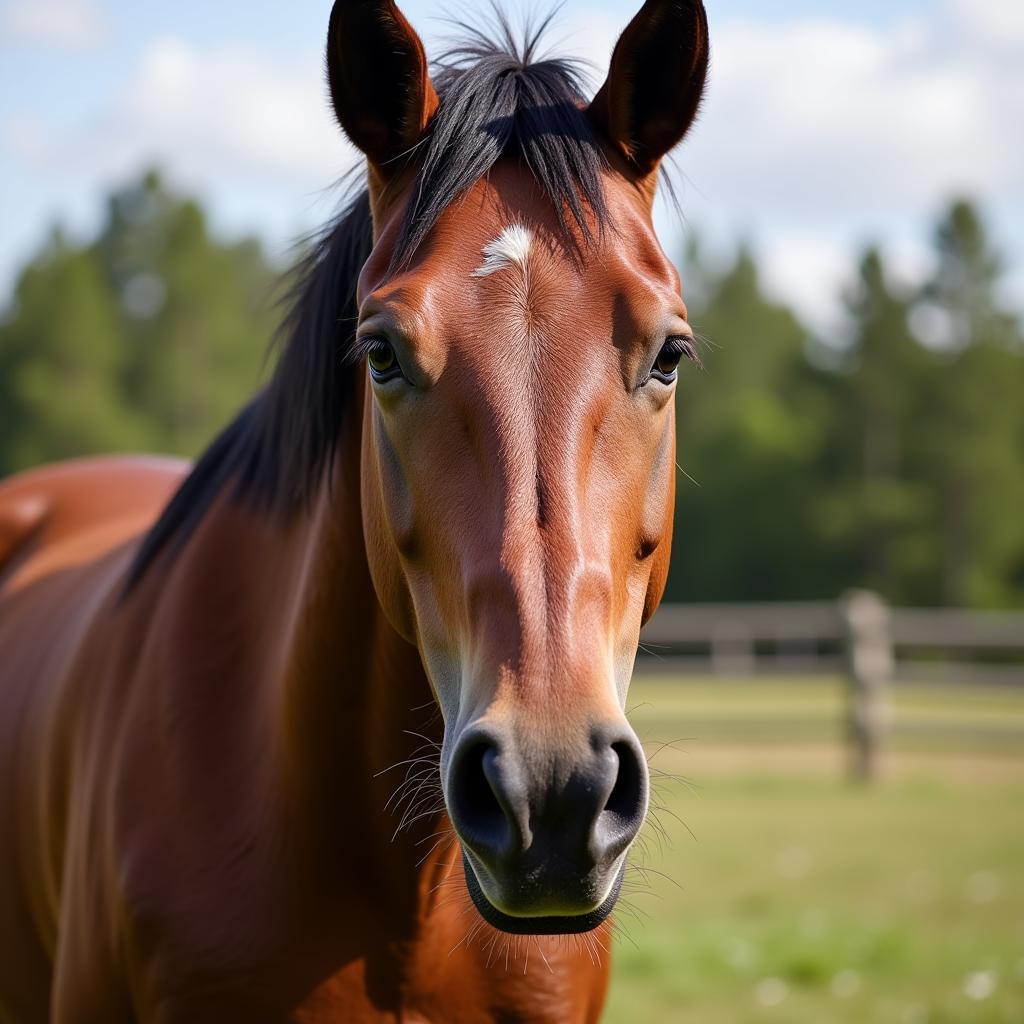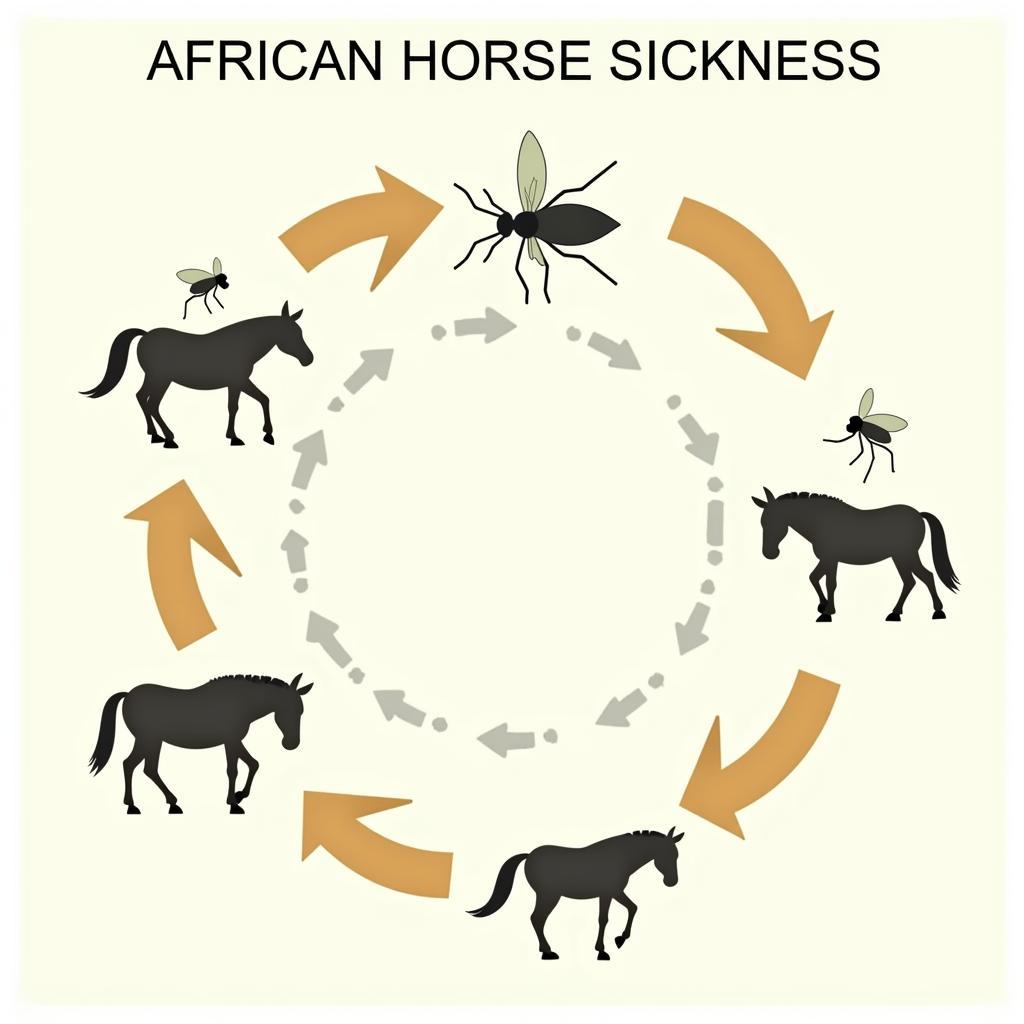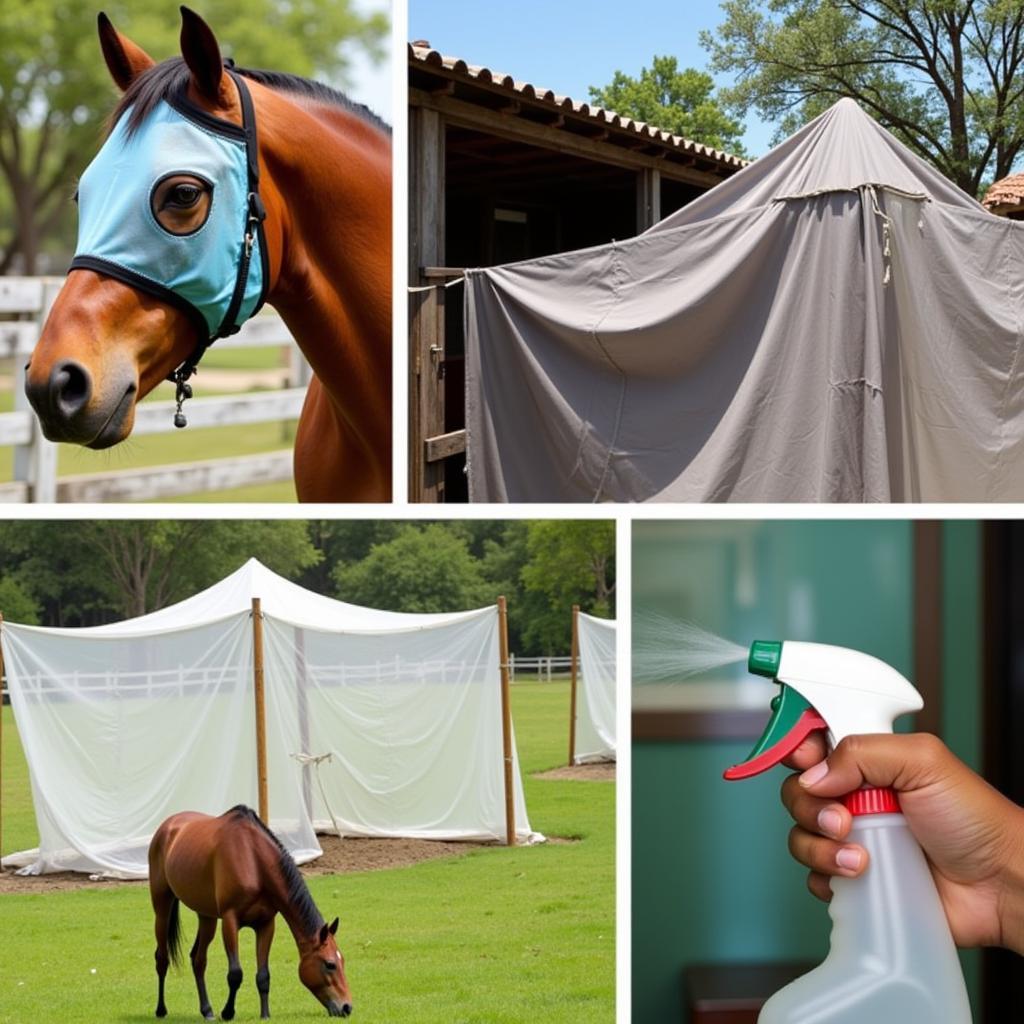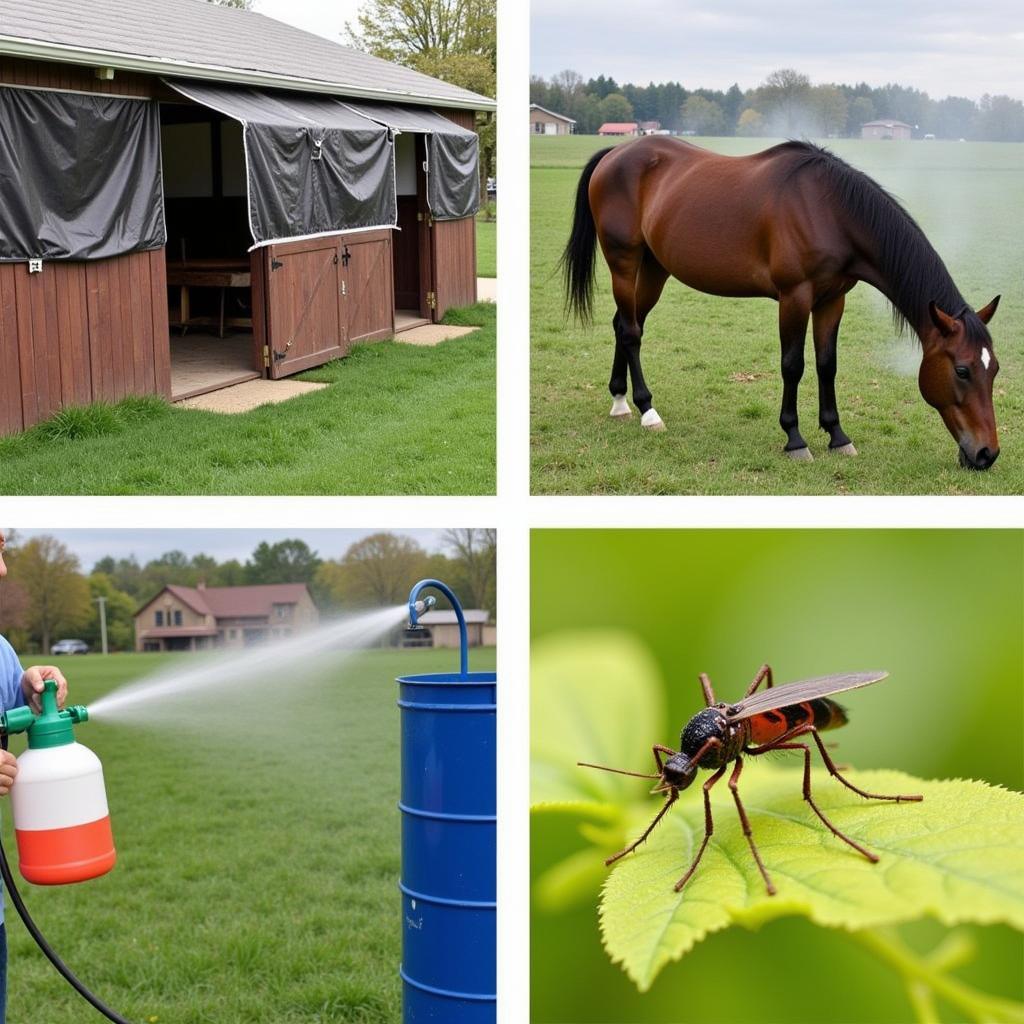Understanding African Horse Sickness
African horse sickness (AHS) is a highly infectious and often fatal viral disease that primarily affects equids, including horses, donkeys, and mules. This debilitating disease, transmitted by biting midges (Culicoides spp.), poses a significant threat to equine populations across Africa and other regions. Understanding the causes, symptoms, prevention, and treatment of AHS is crucial for effective disease management and protecting vulnerable equine populations. Let’s delve into the complexities of this devastating illness.
The Devastating Impact of African Horse Sickness
AHS is characterized by a range of clinical signs, varying from mild fever to severe respiratory and circulatory distress. The severity of the disease depends on several factors, including the virulence of the virus strain, the species and breed of the animal, and the individual animal’s immune status. The disease has a high mortality rate, particularly in susceptible horse breeds. African horse sickness in India provides further information on the spread and impact of this disease.
The economic impact of AHS outbreaks can be substantial, affecting trade, agriculture, and the livelihoods of communities reliant on equines for transportation, farming, and other essential activities. Control measures, including movement restrictions and vaccination campaigns, are often implemented to mitigate the spread of the disease.
 African Horse Sickness Symptoms in Horses
African Horse Sickness Symptoms in Horses
Recognizing the Signs of African Horse Sickness
Recognizing the clinical signs of AHS is critical for prompt diagnosis and intervention. There are four main forms of the disease, each presenting with distinct symptoms:
-
Pulmonary form (Horse sickness fever): Characterized by acute respiratory distress, coughing, frothy nasal discharge, and rapid deterioration of the animal’s condition. This form often has the highest mortality rate.
-
Cardiac form (Dikkop): Marked by swelling of the head and neck, especially around the eyes (supraorbital fossae), and difficulty breathing. Hemorrhages are often observed on the conjunctiva and mucous membranes. You can find more about the swelling related to this disease at African horse sfever swelling of the suraorbital fossa.
-
Mixed form: A combination of pulmonary and cardiac signs, making diagnosis more challenging.
-
Horse Sickness fever: A milder form of the disease, often characterized by fever, lethargy, and loss of appetite.
 African Horse Sickness Transmission Cycle
African Horse Sickness Transmission Cycle
“Early detection and reporting of suspected cases of African horse sickness are crucial for containing outbreaks and preventing widespread transmission,” states Dr. Amani Jabali, a renowned veterinarian specializing in equine infectious diseases in Tanzania.
Prevention and Control of African Horse Sickness: Protecting Your Equines
Preventing the spread of AHS relies on integrated vector control measures and vaccination strategies. Effective vector control aims to reduce midge populations and minimize contact between midges and susceptible animals. This can be achieved through stable management practices such as:
-
Stabling animals during peak midge activity: Typically at dawn and dusk.
-
Using insect repellents and insecticides: To deter midges from biting.
-
Eliminating breeding sites: By removing stagnant water sources.
Vaccination is a critical component of AHS control programs. Several vaccines are available, offering varying levels of protection against different virus strains. Consult with a veterinarian to determine the most appropriate vaccination protocol for your region and the specific risks faced by your animals.
African horse sickness OIE provides valuable resources and guidelines on the disease management.
Treating African Horse Sickness: A Challenging Endeavor
Unfortunately, there is no specific treatment for AHS. Supportive care, aimed at alleviating symptoms and managing complications, is the primary approach. This may include:
-
Fluid therapy: To address dehydration.
-
Anti-inflammatory medications: To reduce inflammation and pain.
-
Respiratory support: In cases of severe respiratory distress.
 African Horse Sickness Prevention Measures
African Horse Sickness Prevention Measures
“While there is no cure for African horse sickness, prompt and intensive supportive care can significantly improve the chances of survival, especially in milder cases,” advises Dr. Fatma Mohamoud, a leading equine researcher at the Sokoine University of Agriculture in Tanzania. For further information, you can refer to African horse sikness animal. African horse sickness virus wiki also offers comprehensive insights into the virus.
Conclusion
African horse sickness remains a significant threat to equine populations globally. Understanding the disease’s transmission, clinical signs, and control measures is crucial for minimizing its impact. By implementing effective prevention strategies and providing prompt supportive care, we can strive to protect these valuable animals from this devastating disease.
FAQ
- What is the mortality rate of African horse sickness? The mortality rate can range from 50% to 95%, depending on the virus strain and the form of the disease.
- How is African horse sickness diagnosed? Diagnosis is based on clinical signs, post-mortem findings, and laboratory tests to detect the virus or antibodies.
- Are there any restrictions on the movement of horses in affected areas? Yes, movement restrictions are often implemented to prevent the spread of the disease during outbreaks.
- Can humans contract African horse sickness? No, African horse sickness is not transmissible to humans.
- Is there a vaccine for African horse sickness? Yes, several vaccines are available, but their effectiveness varies depending on the virus strain.
- What are the long-term effects of African horse sickness in surviving animals? Some animals may experience long-term respiratory complications or reduced performance.
- Where can I find more information about African horse sickness? The World Organisation for Animal Health (OIE) provides comprehensive resources on AHS.
For other helpful information, you can explore other related articles on our website such as “Equine Health in Africa” and “Vector-Borne Diseases in Animals.”
When you need assistance, please contact us at Phone Number: +255768904061, Email: [email protected] or visit our office at Mbarali DC Mawindi, Kangaga, Tanzania. We have a 24/7 customer service team.


